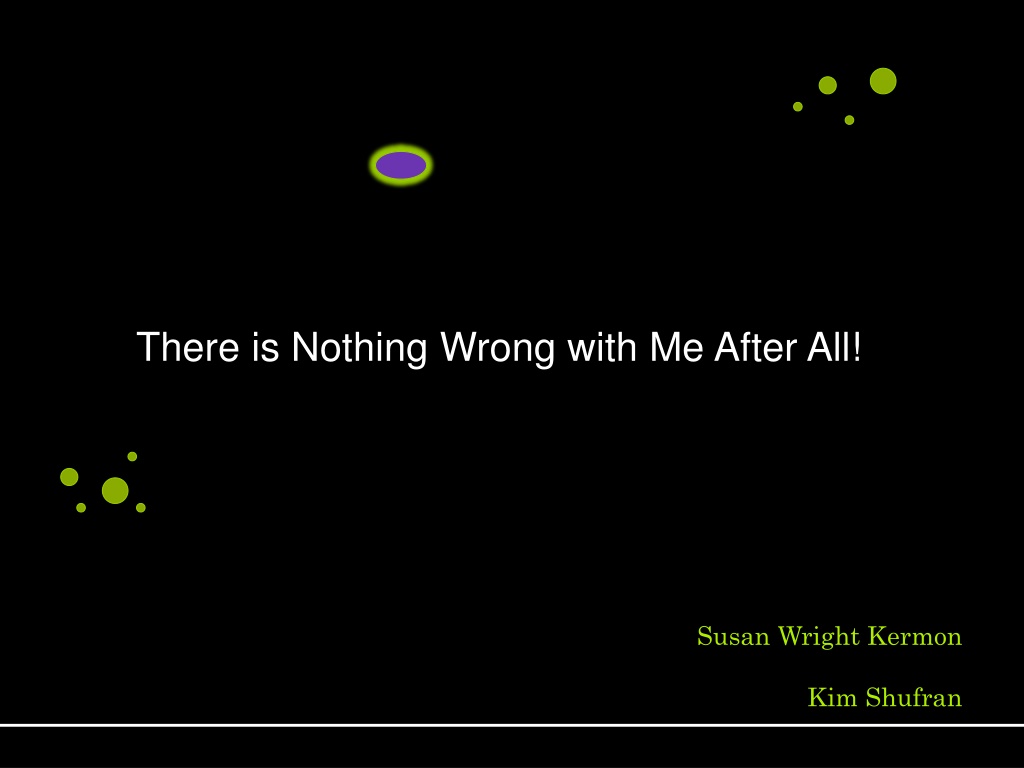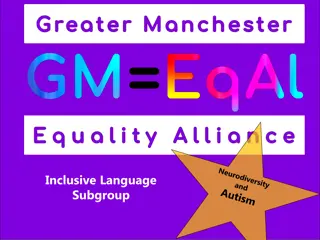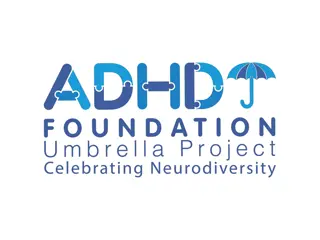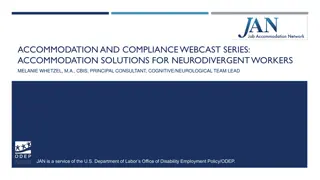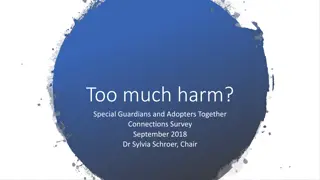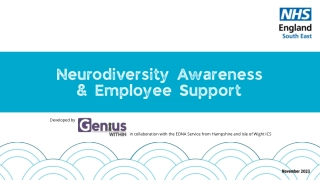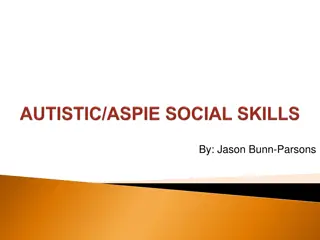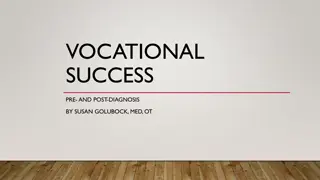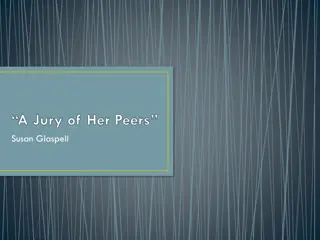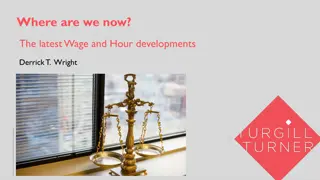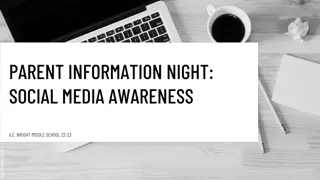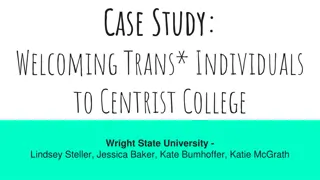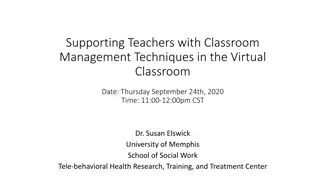Insights into Neurodiversity: The Story of Susan Wright
Unveil the unique journey of Susan Wright, a remarkable individual navigating the complexities of neurodiversity. Through the lens of her experiences shared by Barbara and Susan herself, witness the challenges and strengths of living with Asperger's and the profound impact it has on personal relationships and daily life. Dive into the nuances of Susan's world, understanding the significance of support, patience, and empathy in embracing neurodiversity.
Download Presentation

Please find below an Image/Link to download the presentation.
The content on the website is provided AS IS for your information and personal use only. It may not be sold, licensed, or shared on other websites without obtaining consent from the author. Download presentation by click this link. If you encounter any issues during the download, it is possible that the publisher has removed the file from their server.
E N D
Presentation Transcript
There is Nothing Wrong with Me After All! Susan Wright Kermon Kim Shufran
Different Quirky Strange Unique Odd Bizarre Awkward Interesting Unusual Peculiar Weird
From Barbara In getting to know her, I became aware of the tremendous struggle she has to just live. Her extreme intelligence and exceptional artist abilities mask this struggle to most people. Although, as my sister says, you never know how she is going to act. And another friend admits she is scared around her because her mood can switch so dramatically. The friend thinks she has done something wrong to make Susan mad, which may or not be the case!
From Barbara Susan is so smart, ethical, responsible, kind, thoughtful it is hard to believe she cannot help the way she sometimes acts. I have come to know that she cannot. Some behaviors she has learned to control, but I see the effort it takes.
From Barbara When she told me about the possibility of the Asperger s diagnosis, I cried. Out of relief for her that something may finally explain and make sense out of how hard life has been. And it made me feel sorry that I haven t always been patient and kind. July 2011
An email from Susan October 25, 2012 after attending the Atlanta Autism Conference Well, I made it there and back but I ve been sleeping a great deal since my return. I have taken the week off and now it s Thursday, and I think I m finally awake. I was in quite a state when I got back. It seemed like my brain was a deck of cards flying around in the air. Now they are all lying on the floor and I m ready to start stacking them back in order again. That doesn t sound so good but I m thrilled I was able (and willing) to go.
And Susan continues I thought of you and iCan many times while I was there as you seem to have so figured out how to fill a need. The more I learn, the more impressed I am, the more ideas I have, and the more I want to be a part of it.
Complex neurological differences impacting how one learns and communicates Involving developmental delays Affects a person s social relationships, communication, and behavior Includes alterations in sensory processing taste/smell, movement, touch, auditory, visual, and activity level
No two people are alike When you ve met one person with autism, then you ve met one person with autism. Individuals are often object, rather than relationship oriented Diagnosis is difficult to obtain Requires behavioral observation & history Often takes years Prolonged ambiguity and uncertainty is very stressful
A Diagnosis, Redefined Diagnostic and Statistical Manual (DSM) 5th edition, 2013 Changes prompt significant controversy Approved and adopted by American Psychiatric Association
1 in 68 children has been identified with autism spectrum disorder 1 in 70 in North Carolina ASD reported to occur in all racial, ethnic, and socioeconomic groups ASD 5 times more common among in boys (1 in 42) than among girls (1 in 189). Studies in Asia, Europe, and North America have identified individuals with ASD with an average prevalence of about 1%. A study in South Korea reported a prevalence of 2.6%. About 1 in 6 children in the United States had a developmental disability in 2006- 2008, ranging from mild disabilities such as speech and language impairments to serious developmental disabilities, such as intellectual disabilities, cerebral palsy, and autism. Data from the CDC website
Impact of a Diagnosis Many adults do not know they are affected. Many age 30-40-50-60+ are receiving ASD diagnosis Obtaining a diagnosis can facilitate an understanding of past difficulties with parents, siblings, friends, partners, and coworkers.
Defined the Problem Designed a Solution Innovative Entrepreneurial Club-based model No diagnosis required Reproducible Positioned to expand
iCan House Mission With a foundation in positive thinking, iCan House seeks to enhance the lives of those with social challenges by: teaching social skills, providing educational opportunities, maintaining a hub for resources, and providing a support network for those in need.
862 West 4th Street, Winston-Salem 336-723-0050 info@icanhouse.com www.iCanHouse.org
